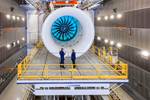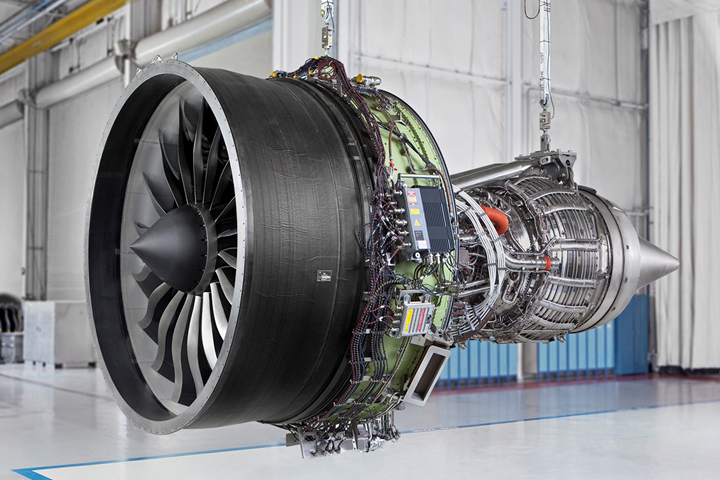GKN enhances aeroengine agreement with GE Aerospace
Extended deal sees new tech development and implementation for the GEnx, increased engine fan case supply and GKN’s addition to the repair network.
Tier 1 aerostructures supplier GKN Aerospace (Redditch, U.K.) has strengthened its partnership with GE Aerospace (Cincinnati, Ohio, U.S.) through an agreement that includes new technology insertion, fan case production and assembly, and repair of high-volume, complex engines structures. GKN already provides components for several engine series, including the GEnx high-thrust engine program (read “High-speed engine blade manufacturing”).
Technology insertion programs for the GEnx will focus on alternative material solutions, providing a more sustainable manufacturing footprint for several products currently flying. GKN Aerospace will provide component design expertise as well as its latest technologies, to drive the program toward its carbon emissions reduction targets and cost reduction. Upgraded components are expected to go through development, validation and insertion from 2024 to 2030.
Under the agreement, GKN Aerospace will now deliver 100% of GEnx, CF6 and GE90 fan cases, as well as 50% of GE9X fan case assembly for the duration of the program. According to Aviation Week, GKN currently supplies GEnx, GE90, GE9X and CF6 components directly to GE Aerospace.
As part of the partnership, GKN also joins GE’s repair network, supporting the GEnx with specialized repair content with its expertise in structural design-and-make of advanced fabrications to repair high-volume, complex structures across its global repair network.
Related Content
-
Partners recycle A350 composite production waste into adjustable-length rods for MFFD
Herone, Spiral RTC, Teijin Carbon Europe and Collins Aerospace Almere recycle A350 thermoplastic composite clips/cleats waste into rods for the all-thermoplastic composite Multifunctional Fuselage Demonstrator’s crown.
-
Rocket Lab begins installation of large AFP machine for rocket production
The 99-ton AFP machine, custom-designed and built by Electroimpact, is claimed to be the largest of its kind, expecting to save around 150,000 manufacturing hours in the Neutron rocket’s production process.
-
TPI manufactures all-composite Kenworth SuperTruck 2 cab
Class 8 diesel truck, now with a 20% lighter cab, achieves 136% freight efficiency improvement.














